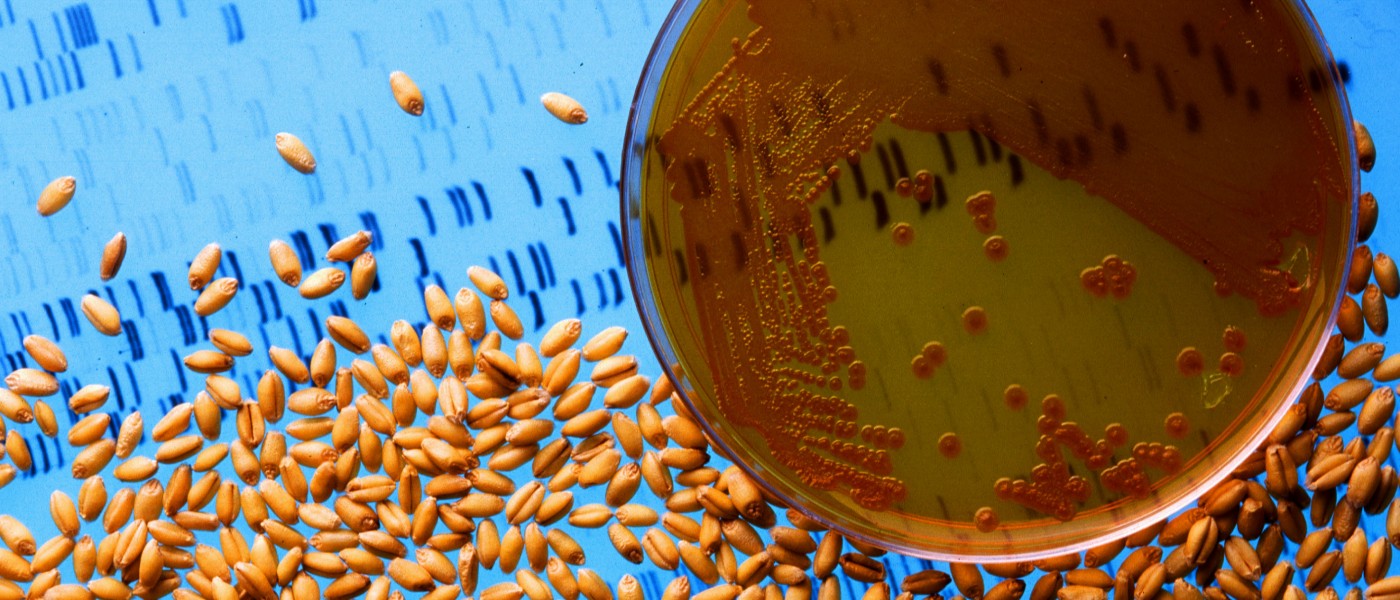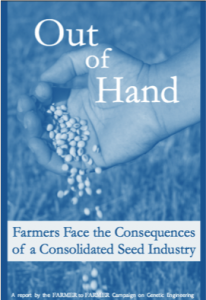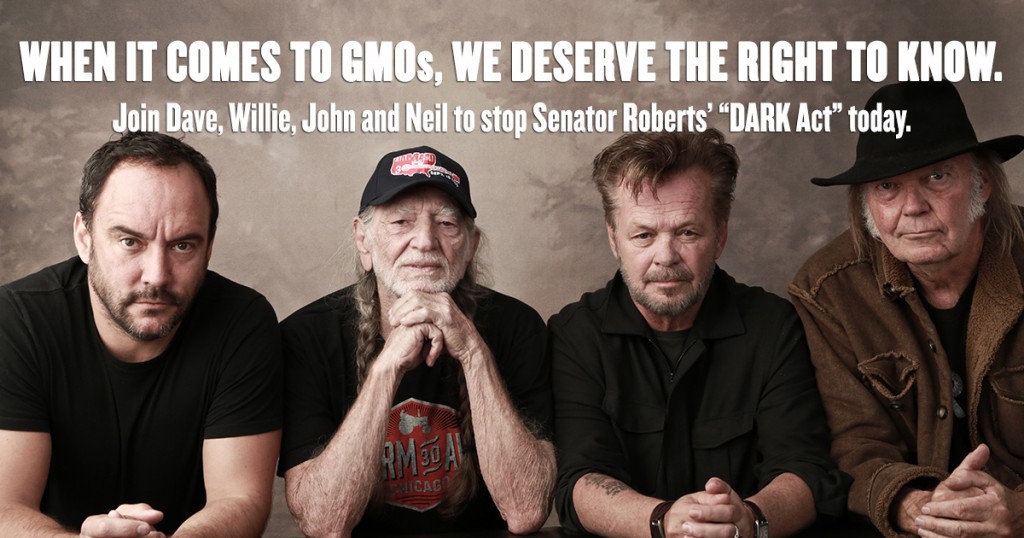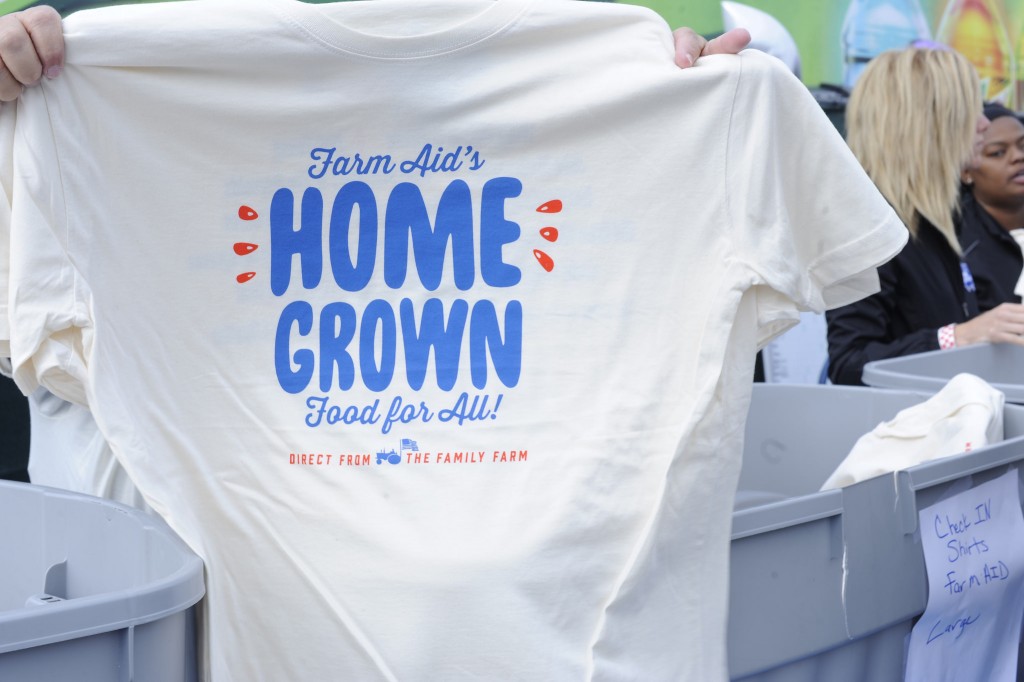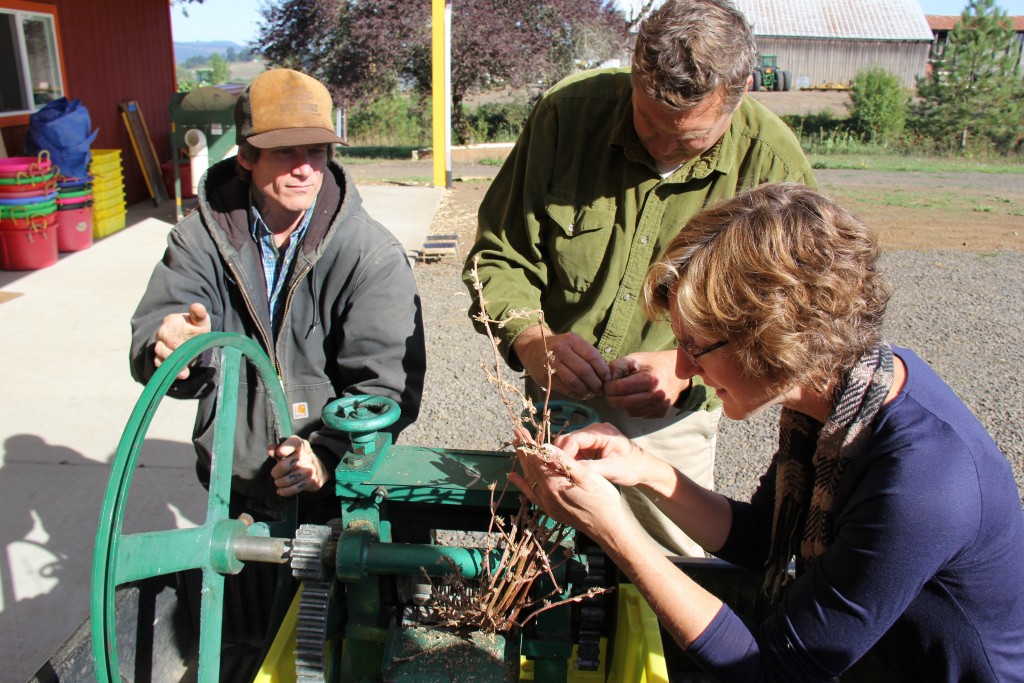Why does Farm Aid work on GMOs?
As with all issues, we begin with the farmer. Long before most people became concerned about GMOs in their food, farmers were facing urgent questions about this new technology.
In the 1990s, farmers heard seed dealers tout genetically modified seeds as a way to save money, increase crop yields, and even solve world hunger. Farmers wanted unbiased information about GMOs, so they organized and led the Farmer to Farmer Campaign on Genetic Engineering (funded, in part, by Farm Aid). Farmer to Farmer focused on the risks of GMOs in agriculture and provided a national forum for farmer action on agricultural biotechnology issues.
Since then, ethical, political, legal, environmental, economic and social implications for GMO technology have intensified, while consolidation and corporate concentration in the seed sector have increased. These developments impact farmers and eaters alike, affecting our food system from field to fork.
Where does Farm Aid stand on GMOs?
On matters related to GMOs, Farm Aid:
- Believes farmers should be able to grow their crops without fear of GMO contamination and that biotech companies should be held accountable for GMO contamination;
- Affirms the right of family farmers to fair, open and affordable access to seeds and the right to save seeds;
- Advocates for antitrust enforcement in the highly concentrated private seed sector;
- Pushes for stronger independent review and oversight of GMO crops, seafood, and livestock prior to their approval and following their release into the environment and marketplace;
- Emphasizes the importance of biodiversity and genetic diversity and supports increased funding for public plant and animal breeding to develop locally and regionally adapted seed and breed varieties;
- Supports alternative supply chains that help farmers meet growing demand for non-GMO products and avoids GMOs in our sourcing.
- Calls for transparency in our food system through mandatory GMO labeling, so eaters can make informed decisions about the food they eat and build demand for non-GMO food.
How does Farm Aid work on GMOs?
We amplify farmer voices and advocate for farmers & eaters.
It is essential that family farmers have a seat at the table in key policy settings and that their stories are told in the media. Farm Aid advocates for farmers — and eaters — on a national stage. In recent years Farm Aid:
- Tackled lax federal oversight over GMOs after farms in Oregon were contaminated with unauthorized GMO wheat and faced dramatic economic losses after export market rejections. Farm Aid funded farmers’ to meet with Secretary of Agriculture Tom Vilsack and members of Congress. USDA now requires permits for wheat field trials – an important step in the right direction.
- Joined more than 400 organizations across the country in calling on the FDA to mandate labeling for all GMO foods.
- Endorsed state and federal efforts to pass GMO labeling or stop efforts to block it, such as HR 1599 – the Deny Americans the Right to Know (DARK) Act.
We build a different kind of system.
Farm Aid puts our values into practice through our food and merchandise sourcing. We support efforts that help family farmers transition to non-GMO production and we increase eater demand for non-GMO food.
- Since 2007, Farm Aid’s branded HOMEGROWN Concessions®, served at our annual concerts, have been GMO-free.
- When Farm Aid sources t-shirts for our concert and online sales, we choose organic cotton to support non-GMO cotton farmers.
- Farm Aid helps to build supply chains for farmers looking to meet the growing demand for non-GMO corn and soy.
We fund farmer-led efforts to protect seed sovereignty and rebuild genetic diversity in our food system.
Farm Aid grantees working on seed issues include National Family Farm Coalition, National Sustainable Agriculture Coalition, Northern Plains Resource Council, Rural Advancement Foundation International – USA (RAFI-USA), and Organic Seed Alliance. Recent projects receiving Farm Aid funding include:
- Organic Seed Alliance (OSA): to address threats to seed integrity and sovereignty, and to advocate for the important role farmers play in saving, improving and ultimately controlling their seed supply. Pictured here is OSA’s research team with a seed-cleaning machine.
- RAFI-USA: In March 2014, RAFI-USA held an event titled Seeds and Breeds for the 21st Century, bringing together federal policymakers, farmers, plant breeders and advocates to address global seed biodiversity.
Farm Aid is proud to stand with the following organizations in support of GMO labeling
National Family Farm Coalition
National Sustainable Agriculture Coalition
National Farmers Union
National Farmers Organization
National Young Farmers Coalition
Federation of Southern Cooperatives
National Black Farmers Association
Missouri Rural Crisis Center
Rural Coalition
Rural Vermont
Western Organization of Resource Councils
Northeast Organic Farming Association (-MA, -CT, -VT, -NY, -NJ, -NH,)
Maine Organic Farmers and Gardeners Association
Family Farm Defenders
Farm and Ranch Freedom Alliance
Illinois Stewardship Alliance
Institute for Agriculture and Trade Policy
Land Stewardship Project
Ohio Ecological Food and Farming Association
Northern Plains Resource Council
Rural Advancement Foundation International-USA
Farmer-Veteran Coalition
Friends of Family Farmers
National Hmong American Farmers Inc.
National Latino Farmers & Ranchers Trade Assn.
Iowa Citizens for Community Improvement
Nebraska Sustainable Agriculture Society
Oregon Rural Action
Organic Seed Alliance
Western Colorado Congress
Powder River Resource Council
Dakota Rural Action
Dakota Resource Council
– Last updated: Mar 18, 2016 –
Click here to download a printable PDF version of this document Read more about how GMOs affects family farmers and eaters
